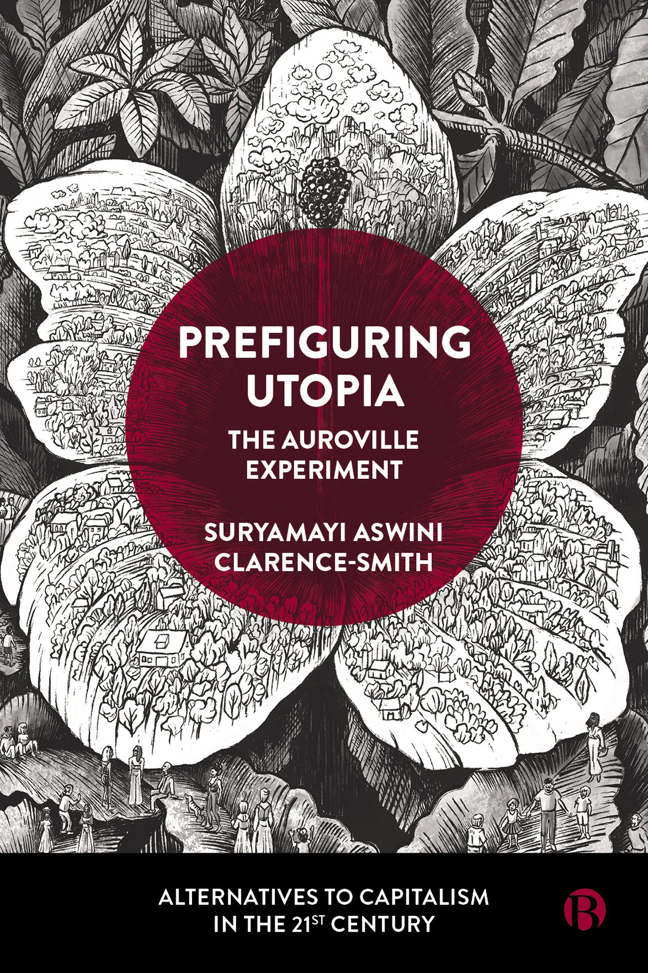Book contents
- Frontmatter
- Dedication
- Contents
- List of Figures and Tables
- Glossary
- About the Author
- Acknowledgements
- Foreword
- 1 All Life is Yoga: An Introduction
- PART I Culture
- PART II Polis
- PART III Economy
- Afterword
- Appendix A A Dream (The Mother, 1954)
- Appendix B The Auroville Charter (The Mother, 1968)
- Appendix C To Be a True Aurovilian (The Mother, 1971)
- Notes
- References
- Index
1 - All Life is Yoga: An Introduction
Published online by Cambridge University Press: 24 January 2024
- Frontmatter
- Dedication
- Contents
- List of Figures and Tables
- Glossary
- About the Author
- Acknowledgements
- Foreword
- 1 All Life is Yoga: An Introduction
- PART I Culture
- PART II Polis
- PART III Economy
- Afterword
- Appendix A A Dream (The Mother, 1954)
- Appendix B The Auroville Charter (The Mother, 1968)
- Appendix C To Be a True Aurovilian (The Mother, 1971)
- Notes
- References
- Index
Summary
1968: another world is possible
Auroville is …
A prayer and a curse,
A suspicious sidelong glance,
An explosion of silent love;
A temple in the sun,
A fractured broken jar,
A whisper in the wind;
A laughter and a song,
A strong fraternal clasp,
A blasphemy of the Gods.
A golden-bodied truth,
A prayer beyond the stars,
A battlefield of bliss.
A child against the sun
A bird against the sky,
A golden thought unsung
A flame that is a cry:
Towards an unknown earth
That in our hearts does rest,
And slowly comes to birth
Breaking slowly forth.
R. Harris, ‘Forecomers, Auroville’, 1978In 1968, young people throughout Europe and North America insisted that ‘Another world is possible’ and sought to claim and enact it. The spirit and culture of this revolution were, in part, informed by the concurrent popularization of Indian spirituality – forever immortalized in the Beatles’ 1968 song, ‘Across the Universe’ – which offered tools for individual emancipation that were seen as necessary to accompany and realize the transformation sought for society at large. In the years leading up to 1968, in India, two ‘spiritual activists’ had begun (r)evolutionizing the yoga tradition (Flores, 2009). Sri Aurobindo (1872–1950) was a revolutionary in India's independence movement who had turned to spirituality to further the work of realizing an emancipated society, while The Mother (1878–1973) was a French mystic who first met Aurobindo in 1914 in Puducherry, a French colony at the time. Rather than individual enlightenment achieved through ascetic withdrawal, the premise of their ‘Integral Yoga’ was the spiritualization of all aspects not only of self but also of society.
Auroville was founded in Tamil Nadu, South India, in 1968 by The Mother as an experimental township dedicated to this endeavour. The project drew both young Westerners stirred by the radical period of 1968, seeking alternative ways of living, and young Indian and foreign members of the Sri Aurobindo Ashram, where The Mother resided, in nearby Pondicherry (see Figure 1.1). Some local Tamilians integrated the community with their families from surrounding villages and even further afield, a growing trend in more recent years.
My father, who joined Auroville in 1975, was one of the young protestors of the late 1960s and early 1970s barricading the streets of London.
- Type
- Chapter
- Information
- Prefiguring UtopiaThe Auroville Experiment, pp. 1 - 16Publisher: Bristol University PressPrint publication year: 2023



